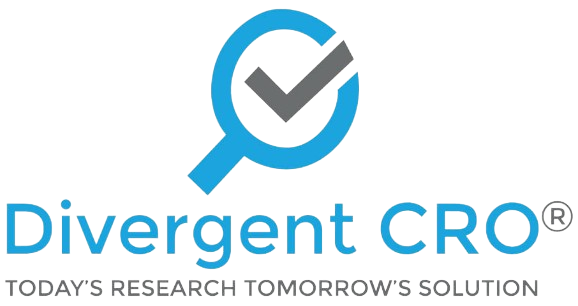In the dynamic and rapidly evolving biotech industry, building strong partnerships with sponsors is essential for success. These partnerships are not just about securing funding but also about aligning visions, leveraging strengths, and creating value together. This guide provides actionable insights on how to cultivate and maintain positive relationships with sponsors, ensuring mutual growth and innovation.
Key Takeaways
- Understanding and aligning with your sponsor’s goals and vision is crucial for mutual success.
- Building trust and rapport with sponsors through open communication and reliability fosters long-term partnerships.
- Leveraging each party’s strengths and unique value propositions can lead to innovative and strategic initiatives.
- Effectively navigating challenges and maintaining flexibility ensures resilience in sponsor relationships.
- Aligning with social causes can enhance the impact and value of sponsor partnerships.
Understanding the Goals and Vision of Your Sponsors
Aligning Objectives for Mutual Benefit
Before seeking out sponsors, it’s crucial to define your goals and target audience. This clarity will help you find partners who share your vision and objectives. Aligning your objectives and values can foster a harmonious collaboration and increase the likelihood of achieving mutual success. For instance, if your project aims to promote sustainability, partnering with organizations that prioritize environmental responsibility can enhance the impact of your collaboration.
Communicating Your Vision Effectively
A clear and compelling vision for your business is essential when approaching potential sponsors. Make sure to communicate your mission statement, purpose, and vision effectively. This will show that you share their values and principles, and are willing to follow their guidance and feedback. Establishing clear goals, expectations, and a shared vision ensures that both parties are working towards a common purpose.
Setting Clear Expectations
Setting measurable goals, defining roles and responsibilities, and agreeing on the terms and conditions of your partnership are key steps in building a strong relationship with your sponsors. This alignment ensures that both parties can effectively measure the success of the partnership. Having a clear vision of your co-marketing goals and target audience will help you narrow down your search and find partners who share the same objectives and audience.
Building Trust and Rapport with Sponsors
Building trust and rapport with sponsors is essential for a successful partnership. Trust is the foundation of any effective collaboration, enabling both parties to share information, resources, and risks transparently. Establishing rapport involves creating an emotional connection and mutual understanding with your sponsor, which can be achieved through frequent communication, active listening, and empathy.
Establishing Open Communication Channels
Open communication is crucial for building trust. Regular updates, transparent discussions about challenges, and sharing success stories can help reassure your sponsors and strengthen your relationship.
Demonstrating Reliability and Integrity
Being reliable and maintaining integrity are key to fostering trust. Always follow through on commitments and be honest about any issues that arise. This demonstrates your dedication to the partnership and builds confidence in your ability to deliver.
Celebrating Joint Achievements
Celebrating successes together can reinforce the partnership and build a positive relationship. Acknowledge the contributions of your sponsors and highlight the achievements made possible through the collaboration. This not only shows appreciation but also motivates continued cooperation.
Remember: it’s all about building relationships, and trust is key!
Leveraging Business Strengths in Partnerships
Identifying Core Competencies
Understanding and identifying your core competencies is crucial in any partnership. These are the unique strengths and capabilities that set your organization apart from others. By clearly defining these competencies, you can better communicate your value to potential sponsors and partners. This clarity helps in aligning your strengths with the needs and goals of your sponsors, creating a more synergistic relationship.
Showcasing Unique Value Propositions
Once you have identified your core competencies, the next step is to showcase your unique value propositions. This involves highlighting what makes your organization special and how it can benefit the partnership. Consider creating a detailed value proposition statement that outlines your strengths, the benefits you offer, and how these align with the sponsor’s objectives. This not only attracts potential sponsors but also reinforces the value you bring to the table.
Collaborating on Strategic Initiatives
Collaboration is key to leveraging business strengths in partnerships. By working together on strategic initiatives, both parties can pool their resources and expertise to achieve common goals. This could involve joint research projects, co-development of new technologies, or collaborative marketing campaigns. Effective collaboration can lead to innovative solutions and drive significant growth for both parties.
In partnerships, leveraging each other’s strengths can lead to groundbreaking innovations and substantial growth. It’s about creating a synergy where the whole is greater than the sum of its parts.
Navigating Challenges in Sponsor Relationships
Navigating the complexities of sponsor relationships in biotech can be daunting. Overcoming challenges in sponsorship requires a strategic approach and a willingness to adapt. Here are some key strategies to help you manage these relationships effectively:
Addressing Conflicts Constructively
Conflicts are inevitable in any partnership. The key is to address them constructively. Establish a clear process for conflict resolution that includes open communication and mutual respect. This approach helps in resolving issues before they escalate, ensuring that both parties feel heard and valued.
Adapting to Changing Circumstances
The biotech industry is dynamic, and circumstances can change rapidly. Being adaptable is crucial. Regularly review and adjust your strategies to align with new developments. This flexibility allows you to stay ahead and maintain a strong partnership even when faced with unexpected challenges.
Maintaining Flexibility and Resilience
Flexibility and resilience are essential traits in managing sponsor relationships. Be prepared to pivot when necessary and demonstrate resilience in the face of setbacks. This attitude not only helps in overcoming immediate challenges but also strengthens the long-term partnership.
Sometimes, it’s about navigating the mismatch between your aspirations and a potential sponsor’s capacity to support you. Understanding and addressing these differences can lead to more effective and sustainable partnerships.
Creating Value Through Joint Initiatives
Developing Collaborative Projects
Fostering collaboration and partnerships in the biotech industry is essential for driving innovation and achieving shared goals. Joint initiatives can take various forms, such as co-developing new technologies, conducting joint research, or launching combined marketing campaigns. These projects not only pool resources but also bring together diverse expertise, leading to more robust and innovative solutions.
Measuring Impact and Success
To ensure the success of joint initiatives, it is crucial to establish clear metrics for measuring impact. This can include quantitative data like revenue growth, market share, or the number of new products developed. Qualitative measures, such as customer satisfaction and brand reputation, are also important. Regularly reviewing these metrics helps in understanding the effectiveness of the collaboration and making necessary adjustments.
| Metric | Description |
|---|---|
| Revenue Growth | Increase in sales and profits |
| Market Share | Percentage of market controlled |
| New Products Developed | Number of new innovations launched |
| Customer Satisfaction | Feedback and satisfaction levels |
| Brand Reputation | Public perception and brand value |
Scaling Successful Partnerships
Once a joint initiative proves successful, the next step is to scale it for greater impact. This involves expanding the scope of the project, increasing investment, and possibly bringing in additional partners. Scaling successful partnerships not only amplifies the benefits but also strengthens the relationship between the involved parties, paving the way for future collaborations.
By focusing on creating value through joint initiatives, biotech companies can achieve greater innovation, efficiency, and market success. This collaboration allows students to gain practical insights and real-world experience through internships, mentorship programs, and joint research projects.
Aligning with Social Causes for Greater Impact

Aligning your biotech company with social causes can significantly enhance your brand’s impact and reach. By integrating cause marketing strategies, you can create meaningful connections with your audience and contribute to positive societal change. Health outcomes for marginalized people can be improved through these initiatives, showcasing your commitment to social responsibility.
Identifying Relevant Social Causes
To begin, identify social causes that resonate with your company’s values and mission. This alignment ensures that your efforts are genuine and impactful. Consider causes that are relevant to your industry, such as health equity, environmental sustainability, or education.
Integrating Cause Marketing Strategies
Once you’ve identified relevant causes, integrate them into your marketing strategies. This can involve collaborating with nonprofit organizations, sponsoring events, or launching awareness campaigns. The goal is to leverage these partnerships to reach new audiences and create a positive social impact.
Engaging Stakeholders in Social Initiatives
Engage your stakeholders, including employees, customers, and partners, in your social initiatives. This can be done through volunteer programs, fundraising events, or educational workshops. By involving your stakeholders, you can amplify your impact and foster a sense of community and shared purpose.
Collaborating with nonprofit organizations is a crucial aspect of building strong partnerships and aligning your brand with a social cause. By working together, businesses and nonprofits can make a positive impact on society while also benefiting their own objectives.
Evaluating and Refining Sponsor Partnerships
Evaluating and refining sponsor partnerships is essential to ensure their ongoing success and relevance. Regular assessments help identify areas for improvement and ensure that both parties continue to benefit from the collaboration.
Conclusion
In the dynamic and ever-evolving field of biotech, building strong partnerships with sponsors is not just a strategic advantage but a fundamental necessity. By understanding your sponsor’s goals and vision, reaching out with personalized messages, and fostering genuine relationships, you can create alliances that drive innovation and growth. Trust, mutual respect, and open communication are the cornerstones of these partnerships. Remember, it’s not about finding the perfect partner; it’s about nurturing the partnership to perfection. Embrace these principles, and you’ll be well on your way to creating enduring and impactful collaborations that benefit both your organization and society at large.
Frequently Asked Questions
Why is understanding the goals and vision of sponsors important in biotech partnerships?
Understanding the goals and vision of your sponsors helps ensure that both parties are aligned in their objectives, leading to mutual benefit and a more effective collaboration.
How can I effectively communicate my vision to sponsors?
You can effectively communicate your vision by clearly articulating your goals, using data to support your claims, and ensuring that your message aligns with the sponsor’s interests and values.
What are some ways to build trust and rapport with sponsors?
Building trust and rapport with sponsors can be achieved through open communication, demonstrating reliability and integrity, and celebrating joint achievements.
How can I leverage my business strengths in a partnership?
Identify your core competencies, showcase your unique value propositions, and collaborate on strategic initiatives that align with both your strengths and the sponsor’s needs.
What should I do if conflicts arise in my sponsor relationship?
Address conflicts constructively by maintaining open communication, seeking to understand the sponsor’s perspective, and working together to find a mutually beneficial solution.
How can aligning with social causes benefit my partnership with sponsors?
Aligning with social causes can enhance your brand’s reputation, engage stakeholders, and create additional value for both your business and your sponsors by making a positive impact on society.




2 Comments
mail tm
Magnificent beat ! I would like to apprentice while you amend your site, how can i subscribe for a blog web site? The account helped me a acceptable deal. I had been a little bit acquainted of this your broadcast offered bright clear idea
admin
I very happy to hear you like our work. You can always contact me at swilliams@divergentcro.com